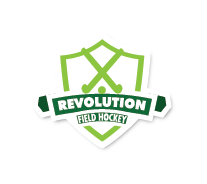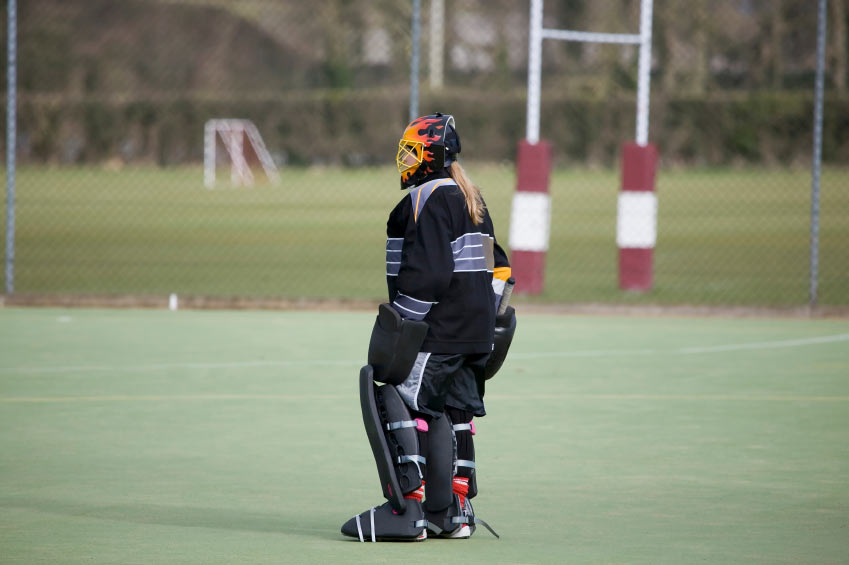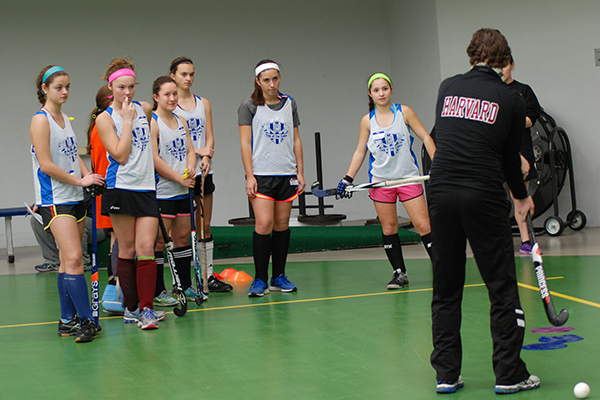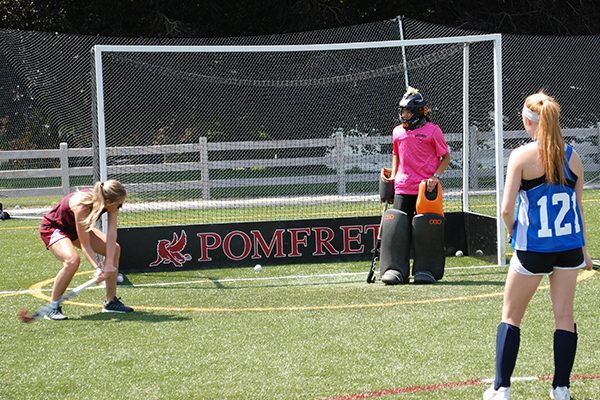Field Hockey Positions Overview
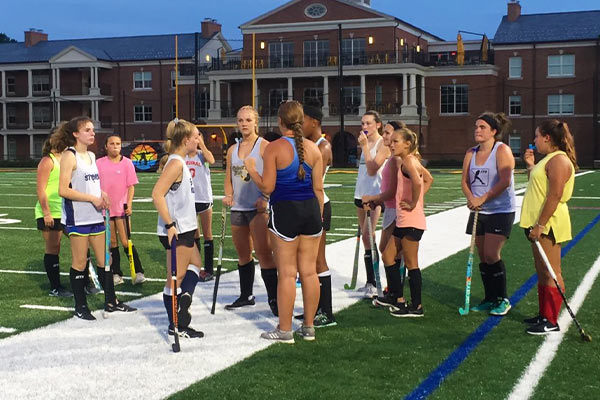
We’re proud that our Revolution Field Hockey Camps are open to field hockey players of all ages and abilities. Wanting to improve your game – both on and off the field – isn’t something just one type of player does! Whether you’re a beginner or a four-year varsity starter in high school, we guarantee that our top-notch coaching staffs – especially at our Connecticut Field Hockey Camp locations – will find a way to help you improve your game before heading home for the remainder of summer.
But if you’re a beginner field hockey player and you’re trying to get your feet underneath you before hitting the field with regularity, there are a few things you need to figure out. Probably the most important thing of all to consider is what position might be the best fit for you. Better yet, it’s good to just learn what all the possible positions are that you can play and then figure out which could work out the best once you start logging minutes and drills on a consistent basis.
Below are the four different positions you could play in field hockey and a short description about each.
Offensive Striker
This area is typically full of goal scorers, so they’re obviously a crucial part of any field hockey squad. The positions for this typically include wings and centre forwards who have an ability of quick stick skills, along with having explosive speed, athleticism, and a nose for finding the goal.
Midfield
This is the position on field hockey teams that’s the glue between both ends. This position takes residence on the inside-left and inside-right areas of the field, along with the centre half. Midfielders have the opportunity to go all over the field and are used to link both the offense and defense together. If you’re thinking that this particular position sounds like a lot of fun, it is, but know one thing – you’ll have to do a lot of running in the process!
Defensive Fullback
If there’s room and an open opportunity to do so, fullbacks are welcome to venture out from the defensive half of the field to the midfield and forward positions, but their main job is to help the goalie keep the field hockey ball out of their own goal.
Goalie
Although goalies are allowed to move beyond the goal-circle, it’s not something they’ll typically do – especially when the opposition has entered into their half of the field on the attack. It’s important to note that goalies are only able to use their body to block and play the ball when they’re inside that goal-circle, so there’s much more of an advantage to staying within that designated area. Once they’re outside the circle, they’re limited to just using their stick, which can be difficult since they’re suited up with so much padding.
Which field hockey position sounds like the best fit for you? When you head to a Revolution Field Hockey Camp, our coaches can evaluate your current skill set and provide some suggestions on what they think could make the most sense given your situation if you’re unsure.
